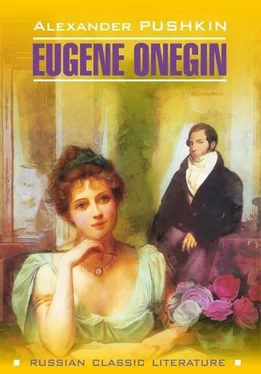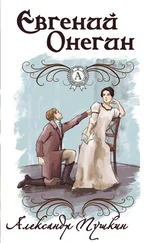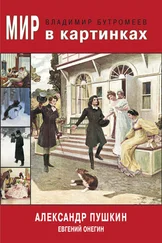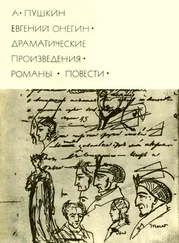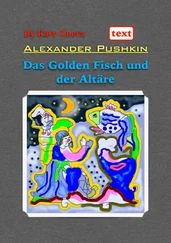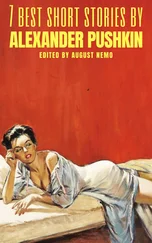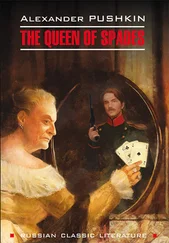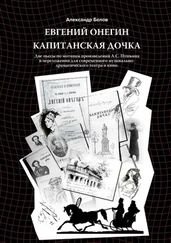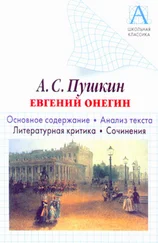Thus age approached, the common doom,
And death before the husband wide
Opened the portals of the tomb
And a new diadem supplied. [25] A play upon the word “venetz,” crown, which also signifies a nimbus or glory, and is the symbol of marriage from the fact of two gilt crowns being held over the heads of the bride and bridegroom during the ceremony. The literal meaning of the passage is therefore: his earthly marriage was dissolved and a heavenly one was contracted.
Just before dinner-time he slept,
By neighbouring families bewept,
By children and by faithful wife
With deeper woe than others’ grief.
He was an honest gentleman,
And where at last his bones repose
The epitaph on marble shows:
Demetrius Larine, sinful man,
Servant of God and brigadier,
Enjoyeth peaceful slumber here.
To his Penates now returned,
Vladimir Lenski visited
His neighbour’s lowly tomb and mourned
Above the ashes of the dead.
There long time sad at heart he stayed:
“Poor Yorick,” mournfully he said,
“How often in thine arms I lay;
How with thy medal I would play,
The Medal Otchakoff conferred! [26] The fortress of Otchakoff was taken by storm on the 18th December 1788 by a Russian army under Prince Potemkin. Thirty thousand Turks are said to have perished during the assault and ensuing massacre.
To me he would his Olga give,
Would whisper: shall I so long live?” —
And by a genuine sorrow stirred,
Lenski his pencil-case took out
And an elegiac poem wrote.
Likewise an epitaph with tears
He writes upon his parents’ tomb,
And thus ancestral dust reveres.
Oh! on the fields of life how bloom
Harvests of souls unceasingly
By Providence’s dark decree!
They blossom, ripen and they fall
And others rise ephemeral!
Thus our light race grows up and lives,
A moment effervescing stirs,
Then seeks ancestral sepulchres,
The appointed hour arrives, arrives!
And our successors soon shall drive
Us from the world wherein we live.
Meantime, drink deeply of the flow
Of frivolous existence, friends;
Its insignificance I know
And care but little for its ends.
To dreams I long have closed mine eyes,
Yet sometimes banished hopes will rise
And agitate my heart again;
And thus it is ’twould cause me pain
Without the faintest trace to leave
This world. I do not praise desire,
Yet still apparently aspire
My mournful fate in verse to weave,
That like a friendly voice its tone
Rescue me from oblivion.
Perchance some heart ’twill agitate,
And then the stanzas of my theme
Will not, preserved by kindly Fate,
Perish absorbed by Lethe’s stream.
Then it may be, O flattering tale,
Some future ignoramus shall
My famous portrait indicate
And cry: he was a poet great!
My gratitude do not disdain,
Admirer of the peaceful Muse,
Whose memory doth not refuse
My light productions to retain,
Whose hands indulgently caress
The bays of age and helplessness.
‘Elle était fille, elle était amoureuse’
Malfilatre
“Whither away? Deuce take the bard!” —
“Good-bye, Onegin, I must go.” —
“I won’t detain you; but ’tis hard
To guess how you the eve pull through.” —
“At Larina’s.” – “Hem, that is queer!
Pray is it not a tough affair
Thus to assassinate the eve?” —
“Not at all.” – “That I can’t conceive!
‘Tis something of this sort I deem.
In the first place, say, am I right?
A Russian household simple quite,
Who welcome guests with zeal extreme,
Preserves and an eternal prattle
About the rain and flax and cattle.” —
“No misery I see in that” —
“Boredom, my friend, behold the ill – ”
“Your fashionable world I hate,
Domestic life attracts me still,
Where – “ – “What! another eclogue spin?
For God’s sake, Lenski, don’t begin!
What! really going? ’Tis too bad!
But Lenski, I should be so glad
Would you to me this Phyllis show,
Fair source of every fine idea,
Verses and tears et cetera.
Present me.” – “You are joking.” – “No.” —
“Delighted.” – “When?” – “This very night.
They will receive us with delight.”
Whilst homeward by the nearest route
Our heroes at full gallop sped,
Can we not stealthily make out
What they in conversation said? —
“How now, Onegin, yawning still?” —
“‘Tis habit, Lenski.” – “Is your ill
More troublesome than usual?” – “No!
How dark the night is getting though!
Hallo, Andriushka, onward race!
The drive becomes monotonous —
Well! Larina appears to us
An ancient lady full of grace. —
That bilberry wine, I’m sore afraid,
The deuce with my inside has played.”
“Say, of the two which was Tattiana?”
“She who with melancholy face
And silent as the maid Svetlana [27] Svetlana , a short poem by Joukovski, upon which his fame mainly rests. Joukovski was an unblushing plagiarist. Many eminent English poets have been laid under contribution by him, often without going through the form of acknowledging the source of inspiration. Even the poem in question cannot be pronounced entirely original, though its intrinsic beauty is unquestionable. It undoubtedly owes its origin to Burger’s poem Leonora , which has found so many English translators. Not content with a single development of Burger’s ghastly production the Russian poet has directly paraphrased Leonora under its own title, and also written a poem Liudmila in imitation of it. The principal outlines of these three poems are as follows: A maiden loses her lover in the wars; she murmurs at Providence and is vainly reproved for such blasphemy by her mother. Providence at length loses patience and sends her lover’s spirit, to all appearances as if in the flesh, who induces the unfortunate maiden to elope. Instead of riding to a church or bridal chamber the unpleasant bridegroom resorts to the graveyard and repairs to his own grave, from which he has recently issued to execute his errand. It is a repulsive subject. Svetlana , however, is more agreeable than its prototype Leonora , inasmuch as the whole catastrophe turns out a dream brought on by “sorcery,” during the “sviatki” or Holy Nights (see Canto V. st. x), and the dreamer awakes to hear the tinkling of her lover’s sledge approaching. “Svetlana” has been translated by Sir John Bowring.
Hard by the window took her place.” —
“The younger, you’re in love with her!”
“Well!” – “I the elder should prefer,
Were I like you a bard by trade —
In Olga’s face no life’s displayed.
‘Tis a Madonna of Vandyk,
An oval countenance and pink,
Yon silly moon upon the brink
Of the horizon she is like!” —
Vladimir something curtly said
Nor further comment that night made.
Meantime Onegin’s apparition
At Larina’s abode produced
Quite a sensation; the position
To all good neighbours’ sport conduced.
Endless conjectures all propound
And secretly their views expound.
What jokes and guesses now abound,
A beau is for Tattiana found!
In fact, some people were assured
The wedding-day had been arranged,
But the date subsequently changed
Till proper rings could be procured.
On Lenski’s matrimonial fate
They long ago had held debate.
Читать дальше
